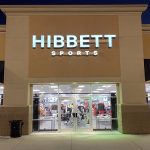Bauer, the overwhelming leader in global hockey equipment sales, has dropped out of the bidding for the NHL apparel licensing deal after parent Performance Sports Group Ltd concluded it could create more shareholder value by growing its existing businesses or buying new team sports brands.
“While we cannot speak to who won the deal, what the economics of the proposed deal are or if there are any other competitors involved, we can say that we did not believe the required financial and operational commitment was the best use of our resources and that maximizing shareholder value would be best served by pursuing our targeted organic growth opportunities and future acquisitions,” said Kevin Davis, CEO of Performance Sports Group Ltd., which owns Bauer and several other team sports brands.
PSG reported Thursday that its currency-neutral basis, total apparel sales grew 59 percent in the fourth quarter and 36 percent for the entire year. Uniform sales were up 82 and 50 percent respectively, while Performance Apparel sales rose 122 and 53 percent.
Currency-neutral hockey revenues grew 17 percent in the fourth quarter and 13 percent during the fiscal year, expanding the company’s share of the global equipment market from 54 percent to 56 percent.
“We grew or maintained our market share in every single category despite having certain market shares in some categories such as skates in excess of 65 percent,” said Davis.
Still, Bauer opted to walk away from the NHL deal, which has been won by Adidas according to some media reports. The NHL is expected in September to announce its new licensing partner, who would begin providing player uniforms and take over apparel licensing rights beginning with the 2016-17 season.
Hockey sales rose 17 percent in fiscal fourth quarter
PSG reported Thursday that its Hockey revenues increased 17 percent (7 percent c-n) to $98.4 million in the fiscal fourth quarter ended May 31 compared to the year-earlier quarter. The growth was driven by the new VAPOR 1X skate, the new RE-AKT 100 helmet and strong under-protective sales due to the Supreme launch and back-to-hockey 2015 orders. Hockey EBITDA increased 75 percent (18 percent c-n) to $27.6 million compared to the year-ago quarter.
At PSG’s Baseball/Softball segment, revenues jumped to $46.2 million from $17.8 million compared with a year earlier due to the acquisition of Easton’s diamond sports business. Baseball/Softball EBITDA was $1.7 million, up $300,000 compared to the year ago quarter.
Revenues in the Other Sports segment, which comprise lacrosse and soccer, increased 7 percent in the fourth quarter to $11.5 million. This was driven by a 9 percent increase in lacrosse, including growth in every equipment category of the Maverik brand as well as growth from the Cascade brand. Maverik sales finished up 27 percent for the full fiscal year. Other Sports EBITDA increased 26 percent to $1.4 million from the year-ago period.
Gross margins plunge on currency impacts
Adjusted gross margin (including the impact of non-cash charges such as amortization of goodwill, marking inventory to fair market value and changes in inventory and other reserves), declined 210 basis points to 36.7 percent, due to lower margins in Baseball/Softball that were due in part to higher freight and distribution costs as a result of the West Coast port strike. Including currency impacts, adjusted gross margin fell 660 basis points to 32.2 percent.
SG&A expenses decreased 590 basis points to 17.0 percent of revenue compared to the year-ago quarter, after excluding acquisition-related charges, share-based payment expenses, costs related to a lacrosse helmet decertification and the impact of a settlement in an intellectual property dispute with BRG Sports.
Net income reached $3.6 million, compared with a year earlier loss of $1 million, and grew 45.6 percent to $15 million, or 32 cents per share on an adjusted basis, which excludes acquisition related expenses, depreciation and amortization. Excluding a the nine cent per diluted share gain from the BRG Sports intellectual property litigation settlement in the fourth quarter of fiscal 2014, Adjusted Net Income increased 114 percent, while Adjusted EPS increased 78 percent.
Volatile exchange rates trigger new guidance
Davis said that currency effects are hitting hardest at the company's hockey business, which represents nearly all the company's international revenue.
At Aug. 27 foreign exchange rates, PSG expects Adjusted Net Income, which excludes a host of non-cash and non-recurring items, to reach 70-to73 cents per share in fiscal 2016. The company attributed the forecast primarily the impact of foreign exchange on reported results in the first quarter. Absent the year-over-year impact of foreign exchange, Adjusted Net Income per share for fiscal 2016 is expected to be roughly flat compared to the $1.02 per share reported in fiscal 2015.
The company also said it expects Adjusted Net Income to reach 10-to-12 cents per share in the fiscal first quarter, which would equate to a decline of approximately 45 percent in currency-neutral terms. Davis attributed the decline to new hockey products launching in fiscal fourth quarter of 2015, a quarter earlier than last year, and the launch of only one bat family for Easton compared to last year's launch of both the Mako and Mako TORQ families.














